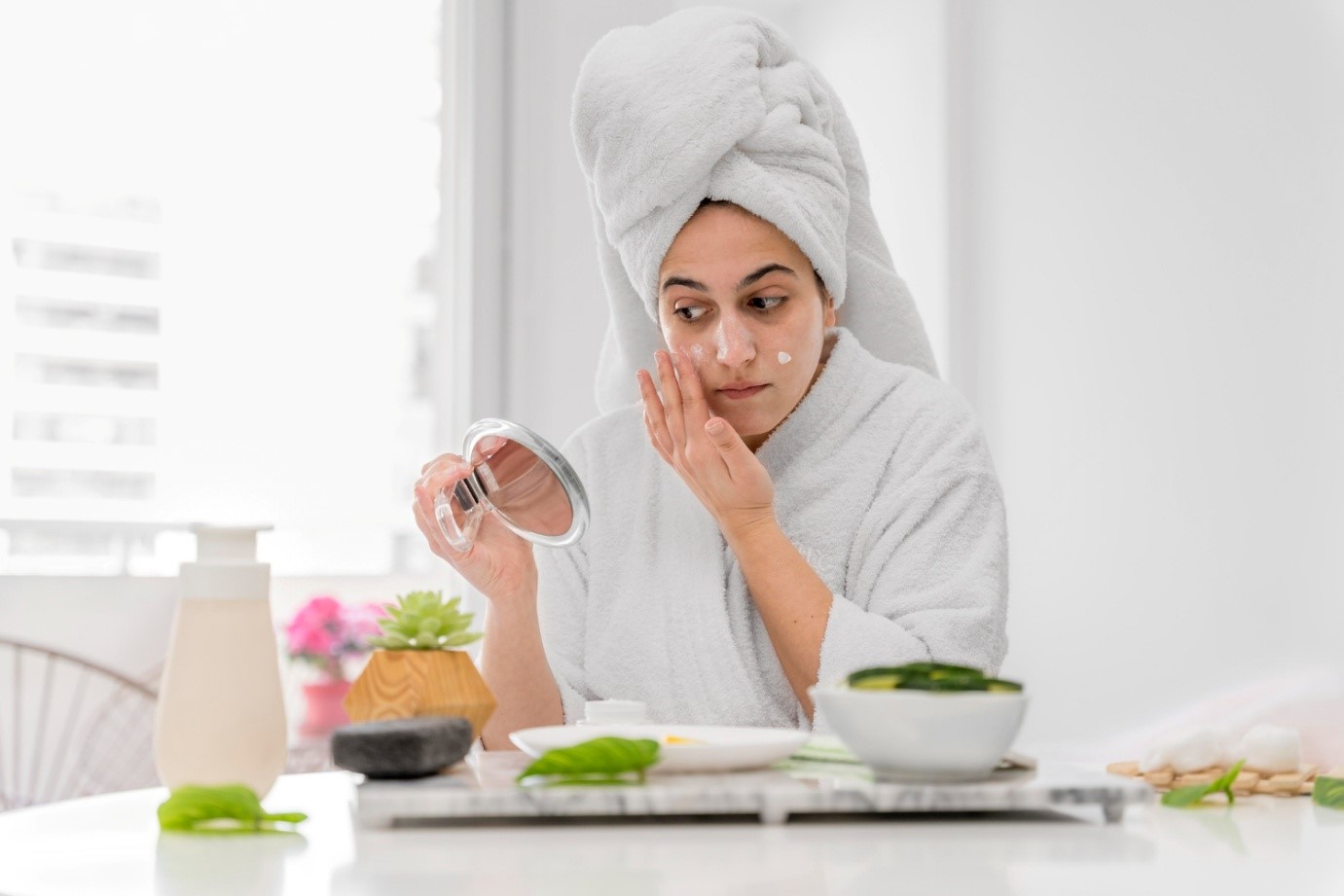
Sensitive skin can be a daily struggle—one moment your skin is peaceful, and the next it reacts to a product or environmental issue you were unaware of. People with sensitive skin frequently experience redness, itching, dryness, and inflammation, and controlling these symptoms needs care and consistency.
Knowing what your skin requires is the first step to having a healthy, radiant complexion, whether you're wondering how to treat sensitive skin on your face, looking for a sensitive skin care routine at home, or seeking advice from professionals at the best dermatology hospital in Powai.
We'll go over a comprehensive skincare regimen for sensitive skin in this blog, complete with product recommendations, doctor recommendations, and home therapies supported by experts.
Sensitive skin is a condition that causes discomfort, such as stinging, burning, or itching, when the skin reacts significantly to external elements, such as specific products, weather, or textiles.
Sensitive skin is a condition where the skin reacts readily to specific triggers; it is not a sickness. Following the use of specific products or exposure to weather changes, these reactions may include redness, stinging, burning, or dryness.
Common causes of sensitive skin include:
You can better understand how to treat sensitive skin on your face by being aware of these triggers.
If you frequently get redness, stinging, or burning after using skincare products or being in the sun or cold, you may have sensitive skin.
If you observe: You probably have sensitive skin.
Seeing the best dermatology hospital in Powai can help you find underlying problems and receive specialized treatment if your symptoms don't go away despite following a strict skincare regimen.
Use natural soothers like aloe vera or colloidal oatmeal, stick to a basic skincare routine with mild products, and protect your skin with daily sunscreen and a modest diet to control sensitive skin naturally.
Here are some easy, efficient ways to treat sensitive skin on the face at home if you prefer natural methods:
Patch testing is still crucial even if these treatments are mild and complement a sensitive skin care routine at home.
Focus on eating a diet high in vitamins, antioxidants, and healthy fats while drinking plenty of water if you have sensitive skin. To help restore the skin's barrier and shield it from harm, drink lots of water and include meals like fatty fish, nuts, seeds, and vibrant fruits and vegetables.
Your diet has a big impact on how sensitive your skin is. To fortify your skin from the inside out:
Dermatologists at the best dermatology hospital in Powai may recommend probiotics or vitamin E supplements for severe responses.
Gentle in-clinic techniques that reduce inflammation and encourage healing, such as oxygen facials, hydrafacials, and LED light therapy, are advanced treatments for sensitive skin.
A basic, straightforward skincare regimen using particular, scientifically proven products and reliable brands is always advised by dermatologists.
Dermatologists at the best dermatologist hospital in Powai may suggest the following if natural therapies don't work:
In order to strengthen the skin's protective barrier—which can be weakened by things like severe weather, specific skincare components, and ailments like atopic dermatitis—barrier repair treatment uses products with ingredients like ceramides, niacinamide, and fatty acids.
Medical-grade moisturizers or barrier-repairing serums are utilized to restore skin resilience for severely injured skin.
When paired with the proper sensitive skin care routine at home, these cutting-edge treatments can completely change the appearance and feel of your skin.
Maintaining the skin's natural barrier needs a simple, mild, and consistent approach to creating a long-term sensitive skin routine.
A morning routine is a set of regular actions to begin the day, such as getting up early, drinking plenty of water, exercising, having a nutritious breakfast, and engaging in self-care or mindfulness.
Establishing healthy sleep patterns, winding down to unwind, and getting ready for the next day are all part of a good night routine. Preparing your lunch and outfit, cleaning your room, engaging in a soothing activity like reading or taking a warm shower, and setting a regular bedtime to guarantee you receive seven to nine hours of sleep are all essential.
Maintaining consistency and listening to your skin are essential. This method gradually teaches you how to treat sensitive skin on the face in an effective and safe manner.
Your beauty regimen doesn't have to be limited by sensitive skin; you just need to make thoughtful decisions. The objective is to fortify your skin barrier and prevent needless discomfort by learning how to treat sensitive skin on your face at home and creating a long-lasting sensitive skin care routine.
If your problems persist, seek a professional evaluation at Powai's best dermatology hospital or other best skin hospitals. Calm, healthy, and radiant skin is entirely achievable with professional supervision and delicate care.
How can delicate facial skin be naturally treated?
Use natural calming agents like honey or aloe vera, fragrance-free creams, and gentle cleansers.
Is it possible to permanently cure sensitive skin?
Although there isn't always a treatment for sensitivity, symptoms can be managed with regular care and avoiding triggers.
When is the right time to see a dermatologist?
See the best dermatology hospital in Powai for professional care if over-the-counter treatments don't work or you have persistent irritation.